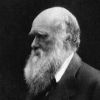“ The influence of the forms and actions in nature, is so needful to man, that, in its lowest functions, it seems to lie on the confines of commodity and beauty. ”
Ralph Waldo Emerson, Nature (1836). copy citation
| Author | Ralph Waldo Emerson |
|---|---|
| Source | Nature |
| Topic | beauty action |
| Date | 1836 |
| Language | English |
| Reference | |
| Note | |
| Weblink | https://en.wikisource.org/wiki/Nature,_Addresses_and_Lectures/Nature |
Context
“But besides this general grace diffused over nature, almost all the individual forms are agreeable to the eye, as is proved by our endless imitations of some of them, as the acorn, the grape, the pine-cone, the wheat-ear, the egg, the wings and forms of most birds, the lion's claw, the serpent, the butterfly, sea-shells, flames, clouds, buds, leaves, and the forms of many trees, as the palm.
For better consideration, we may distribute the aspects of Beauty in a threefold manner.
1. First, the simple perception of natural forms is a delight. The influence of the forms and actions in nature, is so needful to man, that, in its lowest functions, it seems to lie on the confines of commodity and beauty. To the body and mind which have been cramped by noxious work or company, nature is medicinal and restores their tone. The tradesman, the attorney comes out of the din and craft of the street, and sees the sky and the woods, and is a man again.”
source


